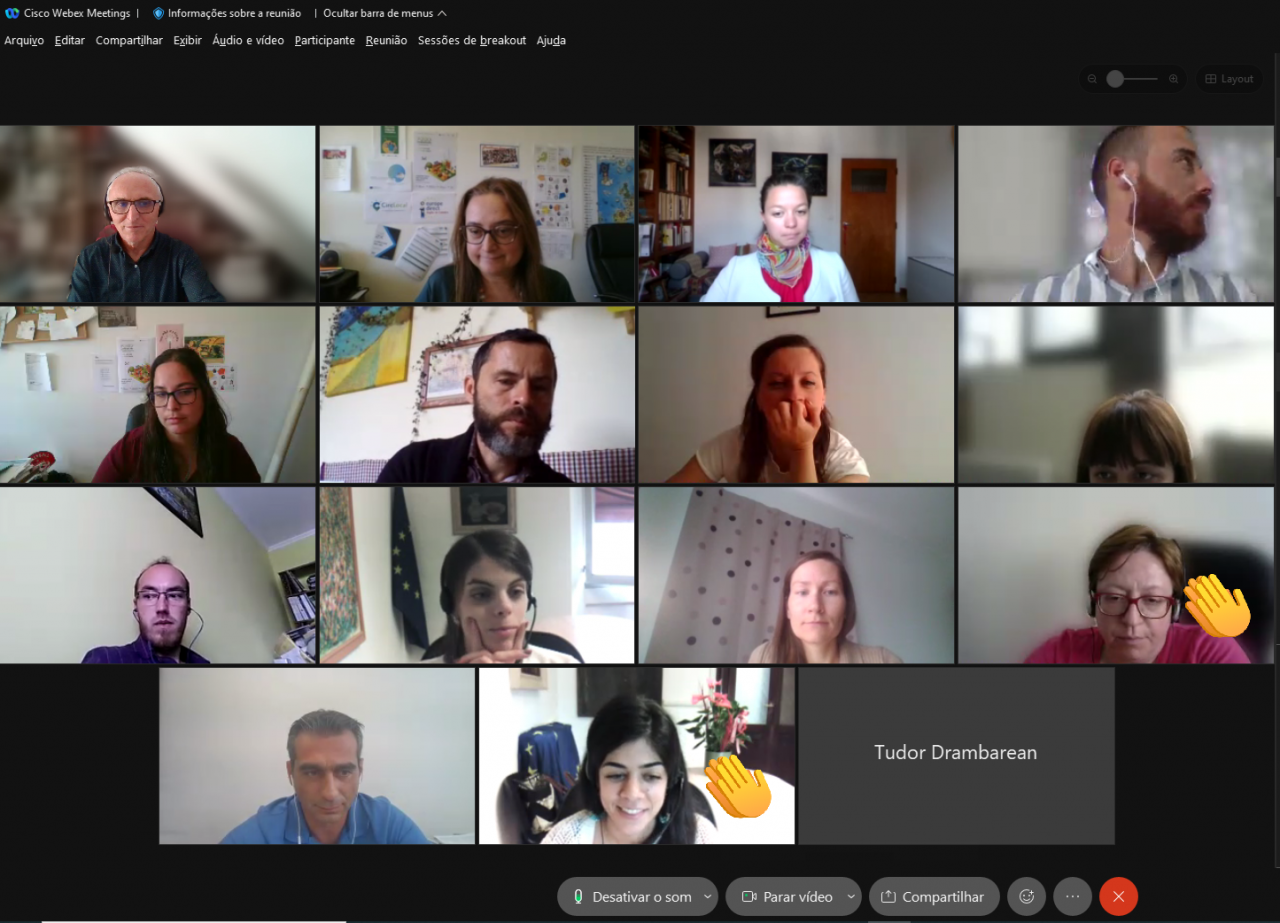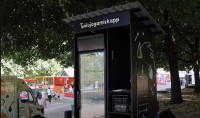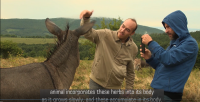
This article presents brief comments on three ideas that describe the state of mind of the FOOD CORRIDORS network just before giving way to the final period of a project that has seen the light and grown parallel to the life cycle of a pandemic. It has been a strange circumstance that we would nevertheless like to consider as the engine that has pushed a desire for rebirth or rejuvenation for our network. We understand this rebirth as the means to cultivate new ways of working, new spaces of relationship, environments of curiosity that generate transformative action to the proposed problems. The FOOD CORRIDORS partners, together with the network's experts and the URBACT Programme, have evaluated what we have experienced, what we have learned, and what we would like to propose to continue with the challenge of cooperation between European cities in the face of their significant challenges.
[[{"fid":"46713","view_mode":"default","fields":{"format":"default","field_file_image_alt_text[und][0][value]":false,"field_file_image_title_text[und][0][value]":false,"field_author[und][0][value]":""},"link_text":null,"type":"media","field_deltas":{"1":{"format":"default","field_file_image_alt_text[und][0][value]":false,"field_file_image_title_text[und][0][value]":false,"field_author[und][0][value]":""}},"attributes":{"class":"media-element file-default","data-delta":"1"}}]]
Learning exchange and participatory approach in times of pandemic
In the summer of 2021, we started with the seven partners of the FOOD CORRIDORS network a journey of reflection aimed at evaluating the period already implemented and, more importantly, relaunching the appropriate work plan for this final implementation stage that will end in August 2022.
Here are some milestones to highlight and some learning to underline if we look at the past period.
The partners are aware of the continuous flexibility that all the network and each of them individually have had to keep from the beginning of the II Phase due to the COVID-19 pandemic.
In this sense, the partners have tried to adapt the Work Plan every time a necessity arises, and a methodological, technical, and operative answer has been found. Nevertheless, the two pivotal elements of the URBACT method have been dramatically affected by the pandemic. First, the participatory approach has been affected on different scales by the low viability of activating and organising the Local Groups life properly. And then, the knowledge and learning exchange in the in-person transnational meetings has been impossible to maintain.
Even though this inconvenient context, the partners assume to have made the expected progress in the analysed period regarding the creation of the Integrated Action Plan (IAP).
The standard and collective solution for all the URBACT networks to manage the unexpected difficulties brought by the pandemic has been based on digitalisation. Digitalisation has entailed several positive aspects regarding the network, such as the capacitation and creation of effective communicative instruments. However, this does not mean that deterioration has been observed in the quality of the transnational experience and learning exchange results.
Simultaneously, some partners aware of the local barriers have tried to find alternatives to maintain the participative dynamics. Some initiatives have facilitated the reconnection with local actors, through the development of local research to find evidence to apply the strategy, the organisation of sub-group meetings on specific topics, the implementation of Small-Scale Actions (SSA), among others.

Difficulties in maintaining the active participation of local actors through the ULG as well as political commitment in a period of crisis have been, as mentioned above, a significant challenge to be managed by the limited technical teams working on the project.
The integrated approach from a positive perspective in the IAP design process is a fundamental axis in URBACT's methodological proposal and a challenge for the partners. In some cases, we have recognized better horizontal interconnection within the partner entities themselves, rarely with stable articulation in the vertical dimension generally associated with collaborations or specific relationships around particular projects. Meanwhile, territorial integration shows positive aspects in those partners that enjoy a larger territorial structure and integrate different municipalities in their organisation. Overall, it is more challenging to offer good practices in terms of sectoral integration given the limited track record of most partners in keeping food-related policies alive, except in specific aspects. At the same time, the food sector itself is a complex web of sub-sectors that are not always well interconnected territorially. This issue was positively addressed during the network meeting devoted to the MTR process with the Programme's Thematic Expert, Marcelline Boneau.
In this overall context, the profile of the teams involved also plays a key role. Characterised by the diversity of circumstances, the performance of stable teams has been a great added value in these difficult times. The food sector and related policy issues have been new for many partners. It has also been unused for the human teams who have needed specific support to improve the initial situation. In this respect, some thematic sessions and webinars were done, and the Lead Expert produced three articles.
Finally, regardless of the results, there is a general agreement among all partners in valuing the SSA proposal as a success for several reasons:
- It is recognised as an activating element
- It is an instrument that makes it possible to test action and thus experiment with an attractive, innovative proposal
- It is a resource that nourishes the IAP to varying degrees.
It is worth mentioning the commitment by the partners, the Programme, and the human resources. Still, a more significant effort is needed to be made in different aspects during next years' implementation period.
1) A consolidation of resources, techniques, and other supporting elements to ease the IAP's drafts' presentation in December. It includes sessions with the Ad Hoc Expert devoted to methodological aspects of the IAP production in September and December's TNM, peer revisions in October, and creating a standard format template for the IAP production, based on the Programme's rules and thematic information.
2) The tracking and encouragement to promote the partners' participation in the e-University session for February 2021.
3) To offer, together with the Lead Partner, some individual solutions about technical and economic readjustment when needed and viable to improve specific aspects. For instance, issues related to the lack of capacities, resources, or other local context elements to strengthen the IAP production and dissemination and the local actors' involvement. Indeed, the network and the participant actors will still be obligated to maintain their flexibility and adaptability in the unforeseen circumstances related to the COVID-19 pandemic. From a positive perspective, we would like to believe that the restart and consolidation of the presential meetings could enact the added value needed to overcome the mentioned difficulties. It will improve the quality of relations between partners, provide solutions and innovative initiatives, create synergies, and bring new challenges.
Networks that are reborn with renewed strength
Considering the current situation of the Covid-19 pandemic, we believe that the flexibility and capacity to adapt with which we have been governing the network will continue to be a consideration in our work. A circumstance that sometimes makes travel difficult or impossible and that also entails the logistical and sanitary difficulty of holding visits to inspiring initiatives as traditionally was made in the transnational meetings of the URBACT networks.
We have seen the convenience of reinforcing the internal production of thematic and methodological inputs by the two experts associated with FOOD CORRIDORS, either by giving a thematic focus to the articles written by the Lead Expert, by generating a pre-filled IAP template, or by opening the agenda of the transnational meetings to the insertion of specific thematic activities.
The success with which Small Scale Actions (SSA) have been experienced invites reflection on what has been learned and consolidating their future continuity.
Given the current uncertainty and unpredictability, it would be interesting to experiment with the creation of sub-groups with a smaller number of partners and belonging to a shared geographical area within the EU, probably with shorter periods to develop knowledge exchange activities and transfer of good practices around structuring themes. Such promotion of relations could take many forms, be it through the organisation of special events, short stays, or small projects between partners from the same national area.
A renewed external communication exercise could also be tested in this final stage of networks such as FOOD CORRIDORS. It could be made to develop some thematic resources that promote the capitalisation and maintenance of open networks around thematic axes, producing educational or communicative materials of broad scope (games, audiovisuals...), all of this with the consequent transnational dynamism and associated local impact.

Concerning the issue of territorial food systems, which is the focus of the work of FOOD CORRIDORS, it is worthing to say that its validity has become even more necessary to tackle the multiple environmental, economic, and cultural problems EU cities face to promote sustainable food systems effectively.
This article was written at the end of the Mid Term Reflection process developed by the partner cities of the FOOD CORRIDORS network.
![]()

